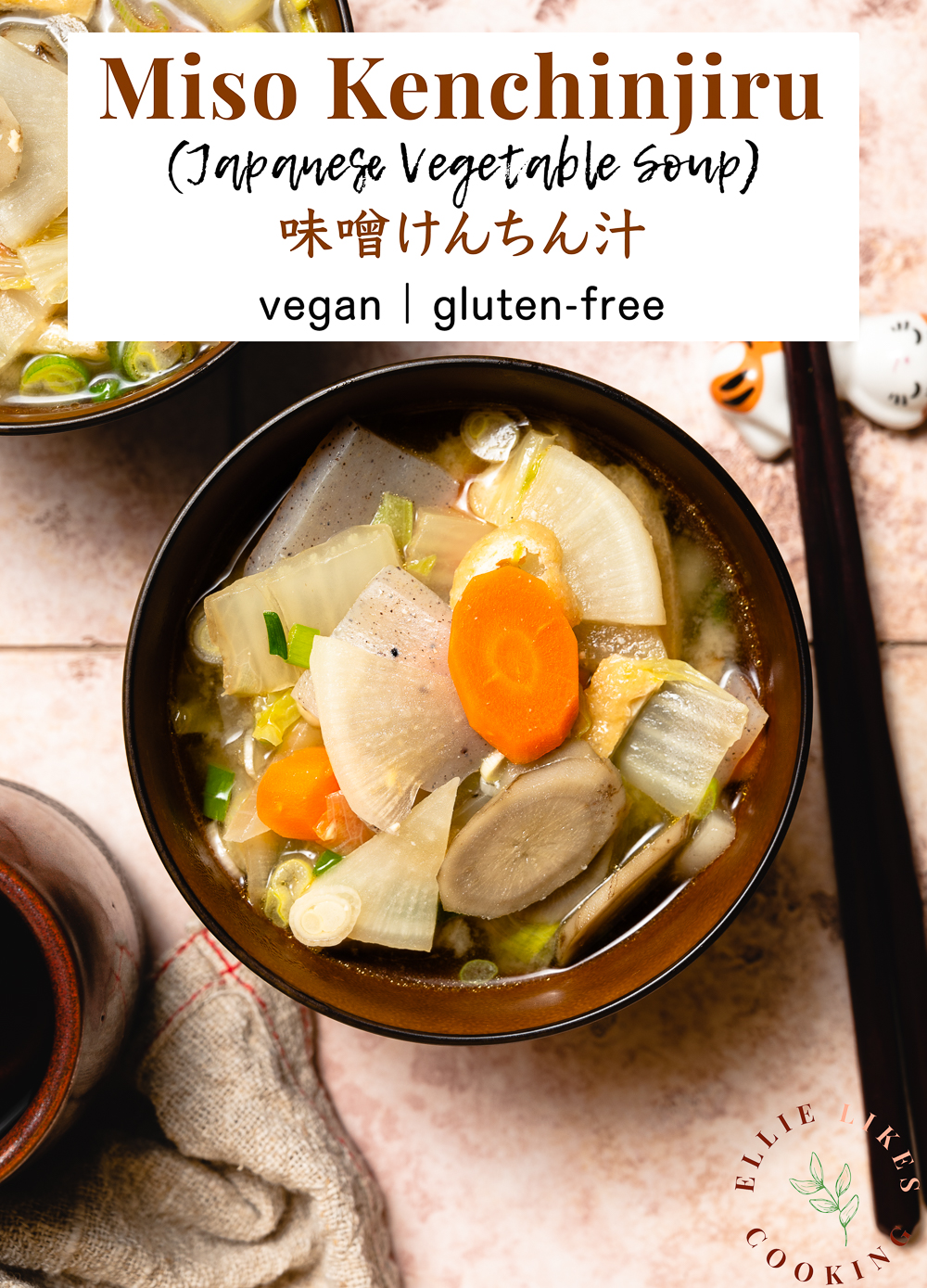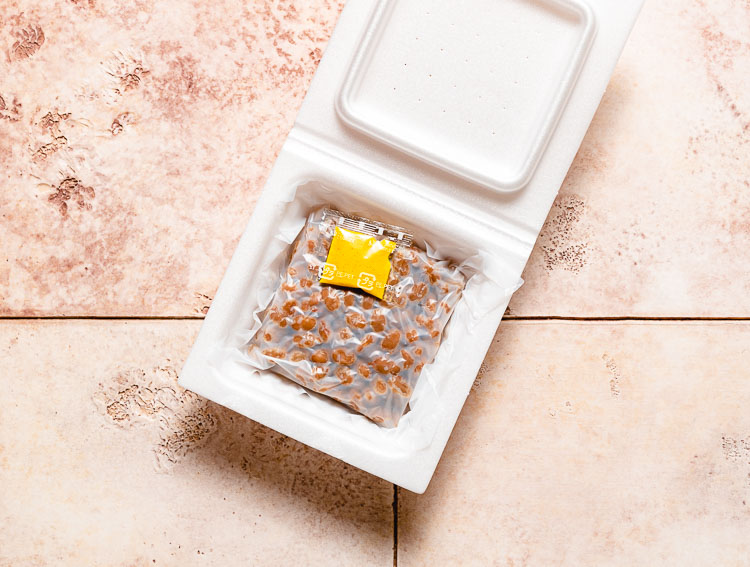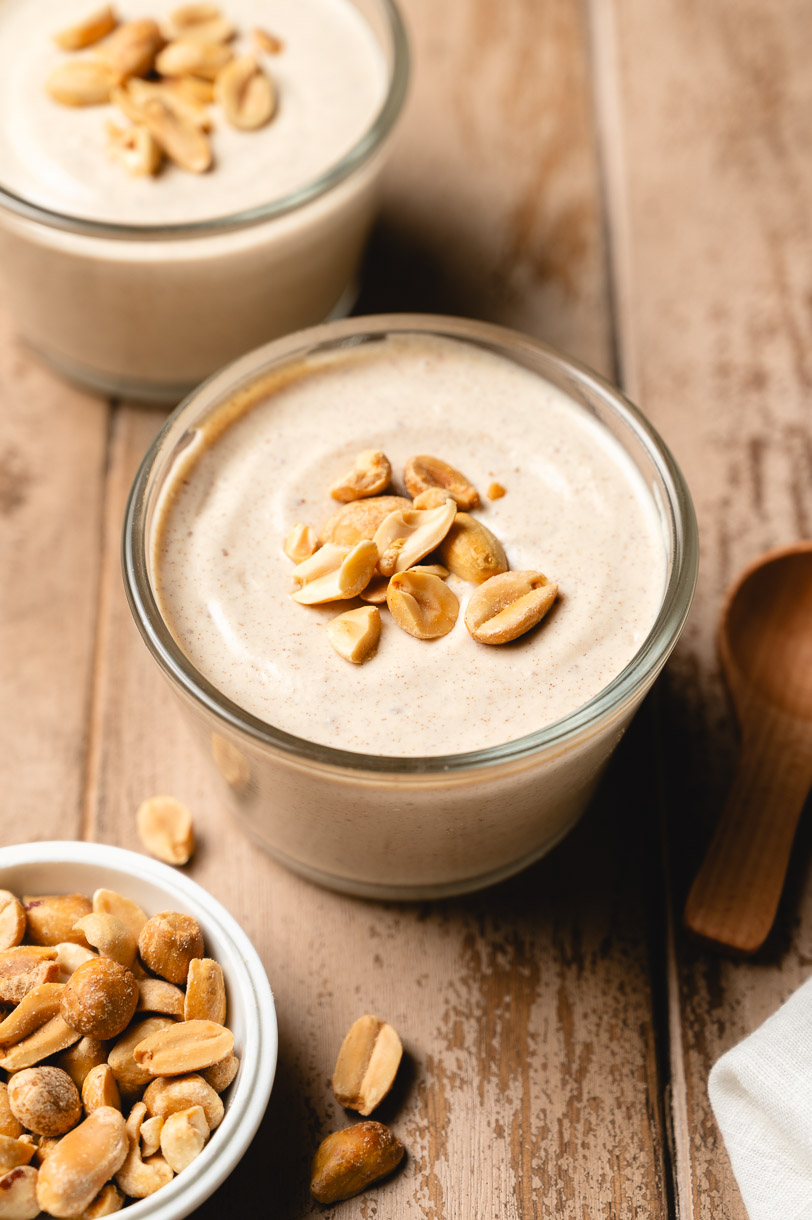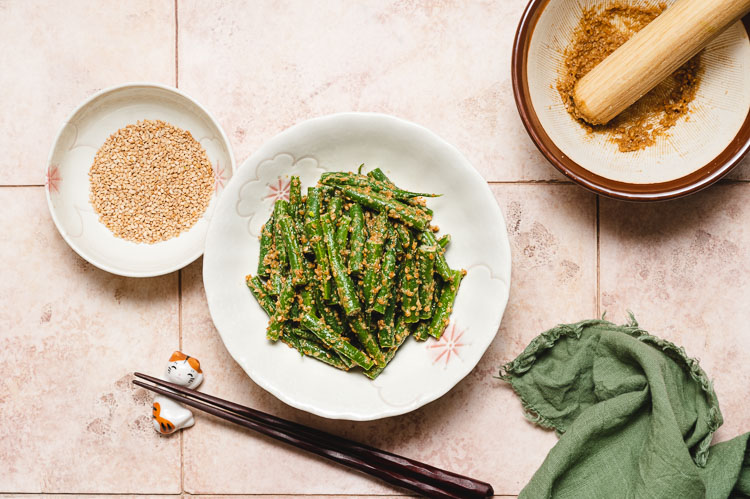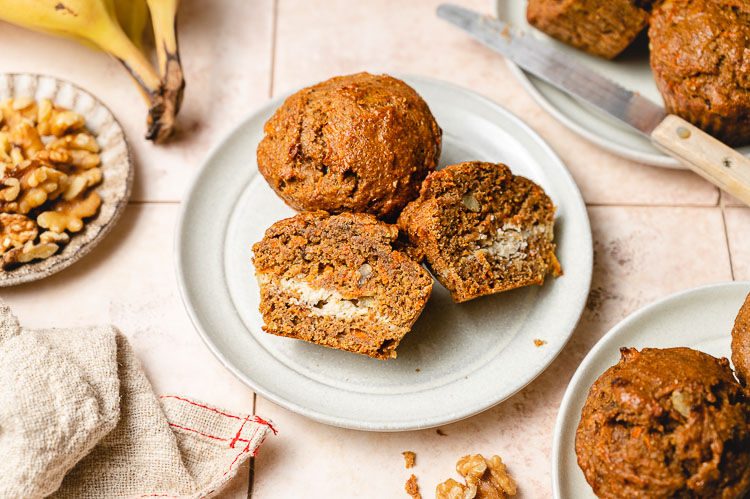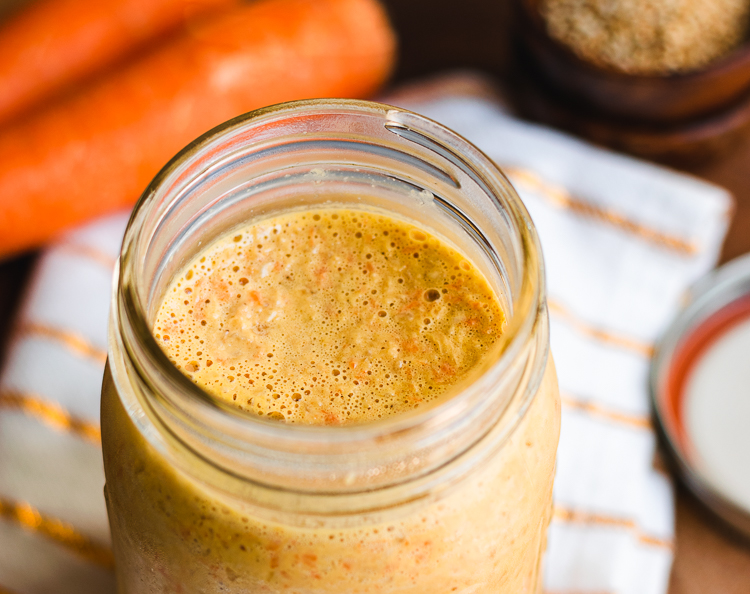Miso Kenchinjiru (Japanese Vegetable Soup) | 味噌けんちん汁
Kenchinjiru is a Japanese plant-based soup made with vegetables and tofu. It’s a hearty, comforting, and healthy meal or side dish.
What is Kenchinjiru?
Traditional kenchinjiru is a clear broth vegetarian soup made with root vegetables and tofu. It’s considered part of shōjin ryōri (精進料理), Japanese Buddhist temple cuisine. Shōjin ryōri is vegetarian cuisine that is also allium-free (so no onions, garlic, scallions, chives, etc.). So it’s vegan/plant-based by default!
Kenchinjiru has become very popular among regular people now, so there are many variations on it. Some people will use alliums, fish-based dashi, or even add some chicken/pork. For my version, I like to add green onions, miso instead of soy sauce, and abura-age in place of tofu. But feel free to play around with the veggies/tofu to suit your tastes!
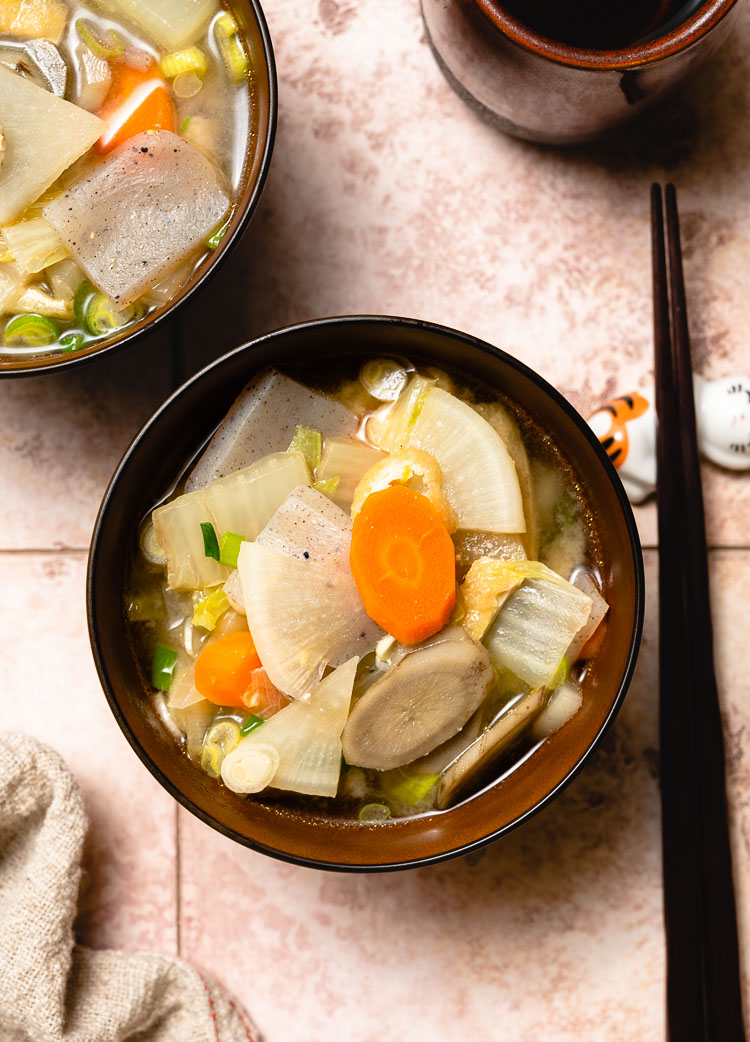
What Ingredients to Use
Root vegetables usually form the base of the soup:
- daikon
- gobo (burdock root)
- carrots
- taro root
- lotus root
Then you can add in other veggies/protein:
- shiitake mushrooms
- konnyaku
- cabbage/napa cabbage
- green onions
- abura-age
- tofu – medium firm, silken firm, or Japanese soft tofu (regular silken tofu will break very easily)
Feel free to mix and match to find a combo you like!
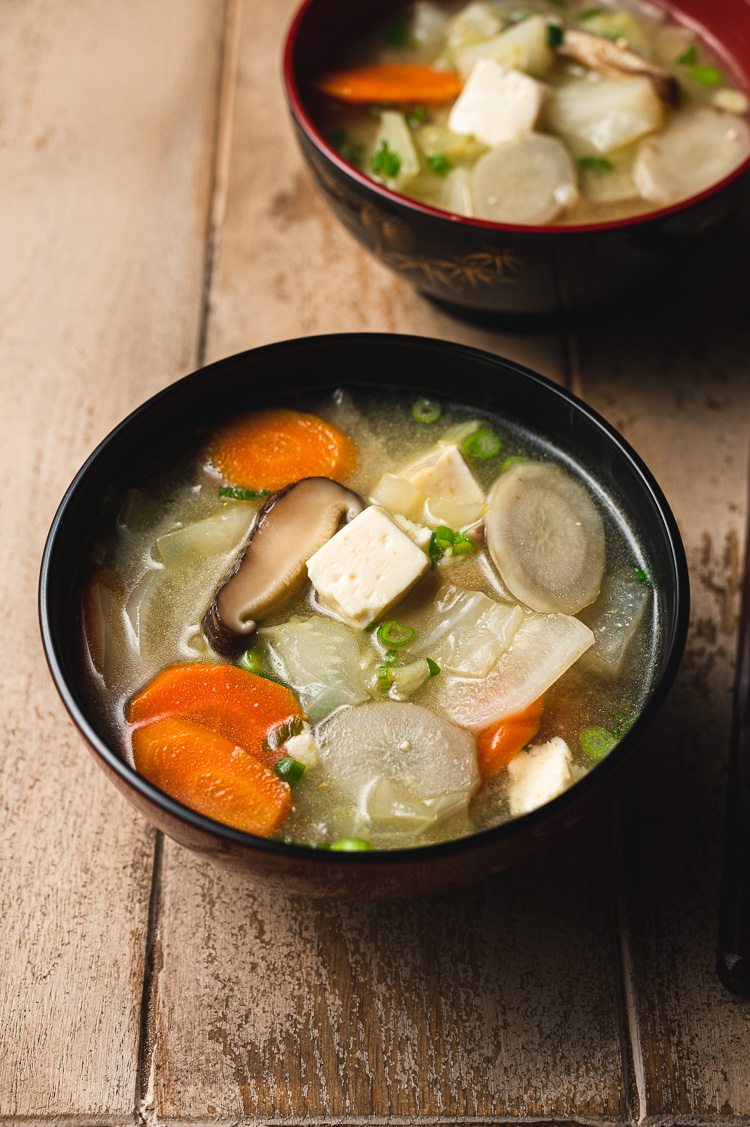
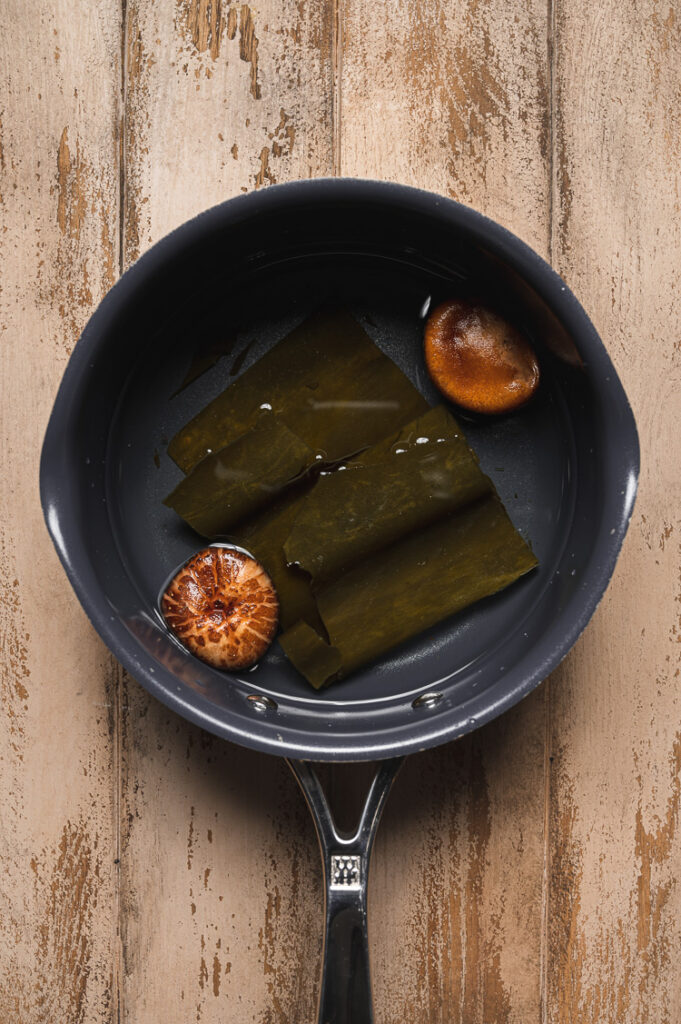
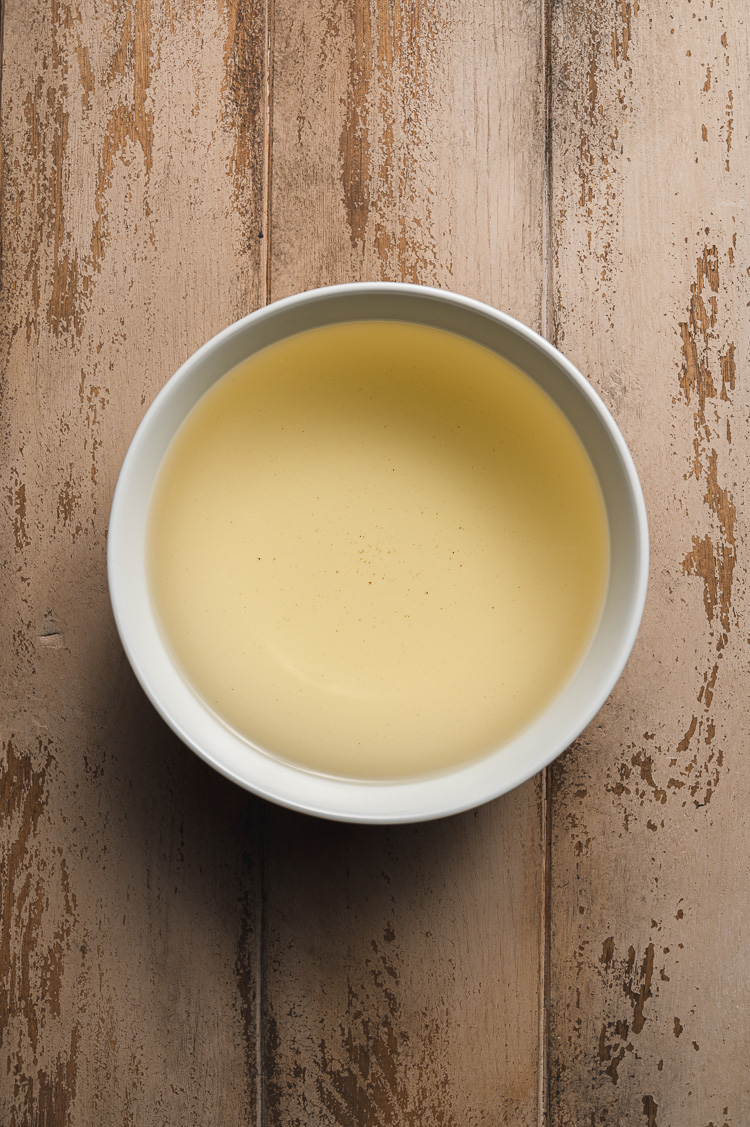
Kenchinjiru FAQ
How do I make kombu dashi?
You can use instant dashi granules* or make your own kombu dashi.
There are two ways to make kombu dashi:
Mizudashi: Soak about 8 grams of kombu in 700ml of water overnight (covered) in the fridge, or for 2-3 hours at room temperature.
Nidashi: Place kombu and water in a pot. Let the kombu soak for 30-60 minutes, then place over medium low heat and slowly bring to a boil. Right before boiling, remove the kombu. If you boil the kombu it will start to get slimy, so make sure you remove it before the water boils.
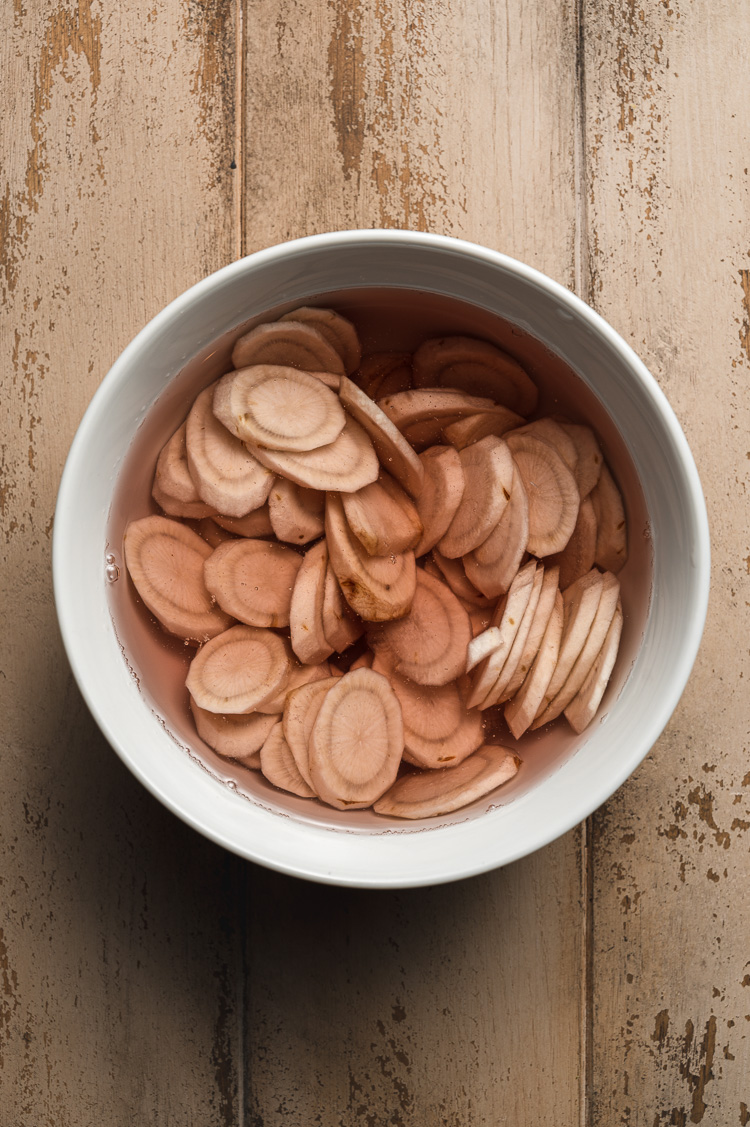
Tips for Success
Boil/pour hot water over konnyaku ⟶ This helps remove the smell from the konnyaku. You can boil in a pot of water for 2 minutes or pour boiling water over it and let it soak for a few minutes. Then drain and rinse.
Boil/pour hot water over abura-age ⟶ This removes excess oil. Boil for a minute (flip the abura-age halfway) or soak in hot water for a minute (press down a few times to submerge the abura-age).
Soak gobo ⟶ Gobo will start to oxidize (turn brown) when exposed to air, so place the cut gobo in a bowl of water while you prepare the rest of the ingredients. This will also help remove some of the aku (アク), or astringency, in the gobo.
Soak lotus root ⟶ The same goes for lotus root. It will oxidize so place it in a bowl of water mixed with a splash of vinegar until ready to cook. Lotus root to oxidizes more easily than gobo, so adding vinegar to the water helps keep its color.
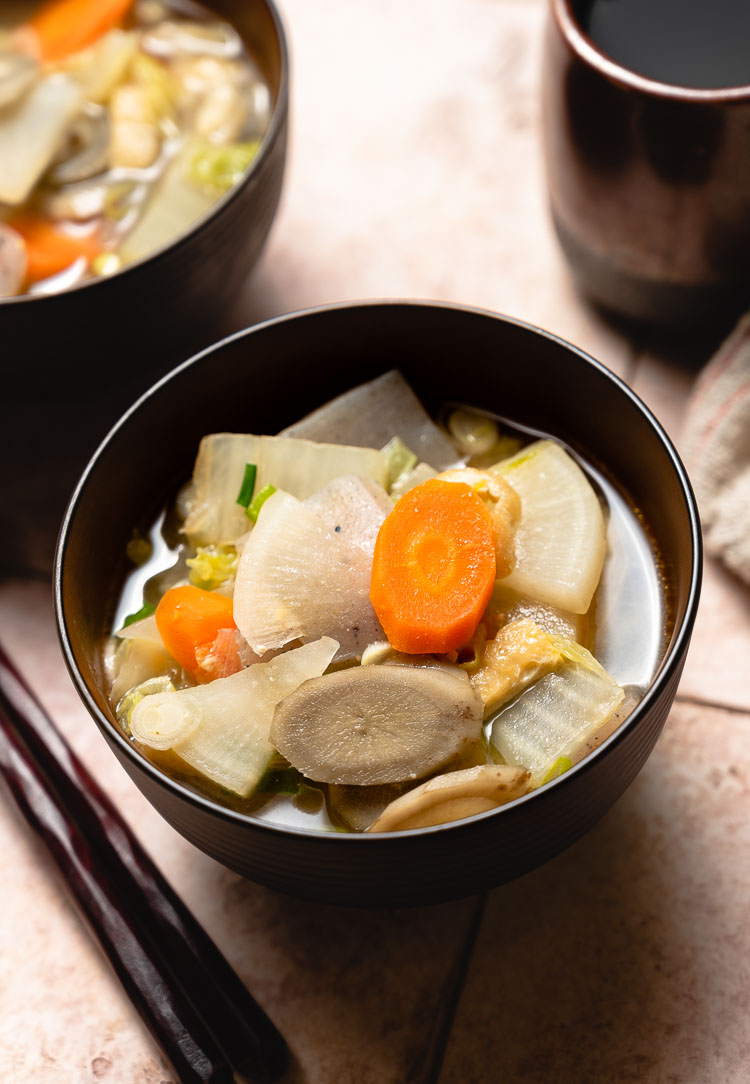
Try These Hearty Soups Too!
- Spicy Bean Sprout Miso Soup
- One Pot Spicy Miso Ramen
- Creamy Kabocha Soup
- Cheesy Broccoli Soup
- Curried Split Pea Soup
Watch How to Make Miso Kenchinjiru
If you try out this miso kenchinjiru, don’t forget to leave a comment/rating down below and tag me in your photos on instagram @ellielikes.cooking. I love seeing all of your tasty recreations!
Miso Kenchinjiru (Japanese Vegetable Soup) | 味噌けんちん汁
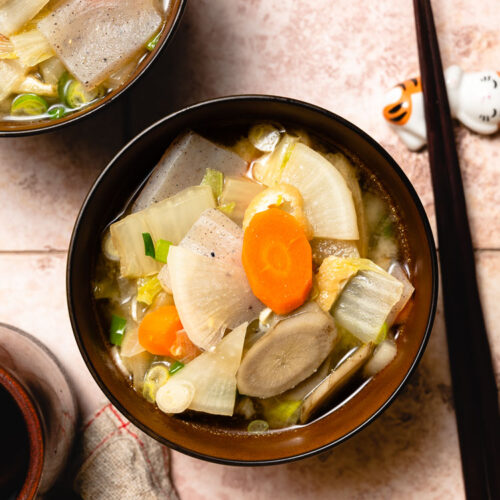
Ingredients
- ½ package konnyaku (about 4 ½ oz)
- 1 sheet abura-age**1
- 1 tbsp
sesame oil* - 100 grams gobo (burdock root) peeled and thinly sliced
- 180 grams daikon peeled, quartered, and thinly sliced
- 1 carrot peeled and thinly sliced
- 2 leaves napa cabbage chopped
- 700 ml kombu dashi**2
- 2 tsp mirin optional
- 2 green onions thinly sliced
- 3 tbsp red or awase
miso*
Instructions
- Soak cut gobo in a bowl of water. You will notice the water get very brown after a few minutes. Soak until ready to cook.
- Boil konnyaku for 2 minutes or pour boiling water over konnyaku and let it soak for a few minutes. Drain and rinse. Thinly slice.
- Boil abura-age for 1 minute or pour boiling water over it and let it soak for a minute. Drain and quickly rinse under cold water. When cool enough to handle, gently squeeze out excess water. Thinly slice.
- Heat sesame oil in a pot over medium heat. Drain and rinse gobo, then add to the pot along with daikon and carrots. Stir to coat with oil and cook for a minute.
- Stir in cabbage and cook another minute.
- Stir in konnyaku and abura-age. Add dashi and mirin and bring to a boil. Lower heat to a simmer and cook for about 10 minutes or until all the veggies are tender.
- Turn off heat and add green onions. Place miso in a ladle and fill with some of the broth. Stir until miso dissolves in the broth, then mix into the soup.
Notes

*Disclosure: This page may contain affiliate links. As an Amazon Associate I earn from qualifying purchases, but the price remains the same to you. Thank you for supporting Ellie Likes Cooking!
Save for later!
